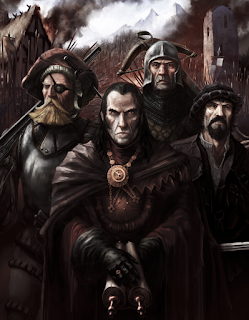Lethality

Thanks to the good people over at reddit, I have a backlog of topics to expound on, including those cursorily mentioned in my first two posts. After much deliberation, I have decided that lethality is the subject of highest importance when discussing the OSR through the lens of 5E. In many discussions on many internet forums, I have seen lethality as the definitive kill switch for enthusiasm when it comes to new players entering from modern editions. It can be discouraging when you play a new game for the first time and die over and over again. How can you expect to have any fun when your character dies before accumulating any loot or experience? It's a fair criticism to make about OSR systems, and the reality is not so straightforward. Hello darkness, my old friend Let's take a look at some of the main underlying causes of lethality in an OSR game and how players can manage them so everyone has a good time: 1. Slow recovery of hit points - there are no healing surge

